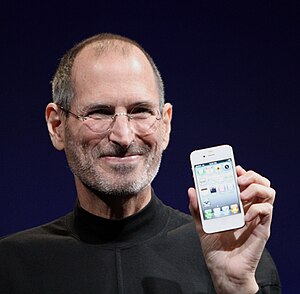Notes on “The Californian Ideology”
Richard Barbrook and Andy Cameron’s 1995[a] essay “The Californian Ideology” interprets the dominant attitude about technology as a one that’s both utopian and built on a history of slavery. It traces the logical outcome of an ideology founded on Jeffersonian democracy: a dichotomous approach to technology that embraces both the “hippie radicalism” of an electronic agora[1] and the electronic marketplace of of Eisenhower liberalism. This mix of “cultural bohemianism” and high-tech industry is built on a “new faith” in the “emancipatory potential” of new media,[2] but as Barbrook and Cameron argue, it is an elitist ideology founded on exclusion and slavery. Ultimately, the essay advocates a convergence of cultural, political, and economic approaches—a “mixed economy”—to support an inclusive electronic infrastructure that guarantees inclusion, promotes a culture of creativity and innovation, and does not depend on an invisible slave class.[3]

They advocate a social and political approach that uses the best of the varying ideological approaches to the Internet: i.e., by combining the best parts of the electronic agora and the electronic marketplace. Rather than excluding one or the other, they make a case for pubic intervention to assure “the interests of all citizens, rather than just to protect the rights of individual property holders.”[4] This hybrid approach advocates entrepreneurship and DIY culture that supports all efforts and voices, and not just those who have the most economic benefits. They reject what they call “social apartheid” and replace it with “the creative and antagonistic mix of state, corporate, and DIY initiatives.”[5] We are not just employees of others, but potential digital artisans who can realize our full creative and economic success with a remix of approaches to our networked lives.
I admit that this sounds like a solid approach, but in the 25 years since B&C wrote this manifesto, we seem to be just products ourselves,[6] using technologies built by slaves,[7] traveling an unequal network,[8] and supporting tech companies that have grown too big to resist.[9] It appears that the right-wing camp of the Californian Ideology has been resoundingly victorious. Perhaps we here in the US are way past an equitable approach to the Internet, and that seems about right. We have show time and again we are a capitalist country, and the more brutal the capitalism, the more we seems to like it. Are we really living in a Randite country filled with wannabe supermen? This seems to be our reality, especially now with 45 at its head.
Still B&C give us a different way of considering the importance of the bazaar in our cathedral-dominated world. There are still ways to resist, even with the technologies Apple and Google allow me to rent. Unlike the capitalism of old that was built solely on atoms, bits are much more messy, ambiguous, and often circumvented. Maybe there’s still hope for the hippies when the world grows increasingly cyberpunk.
Questions for Consideration
- What do Barbrook and Cameron mean by the “virtual class”?
- How do you understand their use of “Jeffersonian democracy” in their argument?
- How are B&C using the word “liberalism”?[b]
- What is an (electronic) agora?[10]
- Why do they call the “free market” a “myth”?
- Why do “digital artisans lead a schizophrenic existence”?[11]
- Which approach to the electronic world do Barbrook and Cameron seem to advocate?
- B&C state “the technologies of freedom are turning into the machines of dominance.”[12] What do they mean?
Notes
- ↑ While it’s now 25-years-old, I would argue it’s maybe more relevant today than it was then. However, we in the US continue to make mistakes they outline, like the FDA’s dismissal of Net Neutrality.
- ↑ See p. 11, for example.
Citations
- ↑ Barbrook & Cameron 1995, pp. 1, 3.
- ↑ Barbrook & Cameron 1995, p. 1.
- ↑ Barbrook & Cameron 1995, pp. 16–18.
- ↑ Barbrook & Cameron 1995, p. 16.
- ↑ Barbrook & Cameron 1995, pp. 17.
- ↑ Oremus 2018.
- ↑ Albergotti 2019.
- ↑ Kelly 2018.
- ↑ McLaughlin 2019.
- ↑ Barbrook & Cameron 1995, p. 3.
- ↑ Barbrook & Cameron 1995, p. 10.
- ↑ Barbrook & Cameron 1995, p. 13.
Work Cited
- "16 Ways Facebook, Google, Apple and Amazon Are in Government Cross Hairs". New York Times. Technology. September 9, 2019. Retrieved 2020-02-10.
- Albergotti, Reed (September 9, 2019). "Apple accused of worker violations in Chinese factories". Washington Post. Technology. Retrieved 2020-02-10.
- Barbrook, Richard; Cameron, Andy (1995). "The Californian Ideology". Imaginary Futures. Retrieved 2018-08-13. All citations taken from the PDF.
- Kelly, Makena (June 11, 2018). "Net neutrality is dead — what now?". The Verge. Retrieved 2020-02-10.
- McLaughlin, David (July 26, 2019). "Did Big Tech Get Too Big? More of the World Is Asking". Washington Post. Bloomberg. Retrieved 2020-02-10.
- Oremus, Will (April 27, 2018). "Are You Really the Product?". Slate. Retrieved 2020-02-10.
